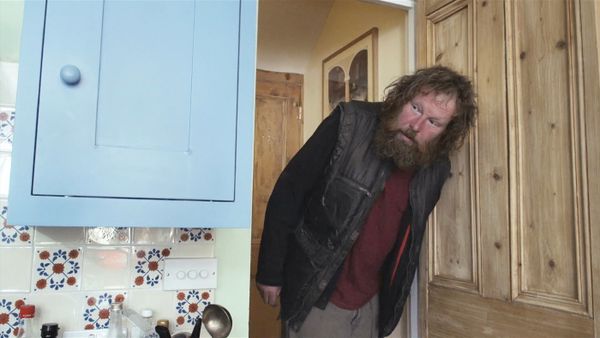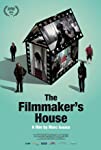Eye For Film >> Movies >> The Filmmaker’s House (2020) Film Review
The Filmmaker’s House
Reviewed by: Sunil Chauhan

In an early sequence in The Filmmaker’s House, director Marc Isaacs chats to his producer on Skype about his dubious funding prospects. Told that backers prefer projects they can “pitch upward” such as documentaries on serial killers, Marc responds in a way you might expect from a director more interested in a more common form of lived experience, protesting that “they’re obsessed with darkness… (but) the ordinary life of human beings can be interesting as well.”
So it proves here. In an overlap of documentary convention and semi-scripted faux-realism that offers a playful, frivolous edge to proceedings, even if the aim of its hybrid make-up isn’t always obvious, we have a defiant rejoinder to narrative and crime-led docs, Isaacs’ instead using the idea of hospitality as a loose node to invite a cast of characters into his north-east London home.

How much of his assembled quartet are being themselves isn’t clear but all are memorable. There’s homeless Slovakian man Mikel, who reveals a litany of infected scabs to the camera as he lies in a hospital bed. Columbian cleaner Neri arrives with the news that that her mother has recently passed away but she doesn’t want to attend the funeral – Isaacs tries to get her to talk about it on camera but it doesn’t quite happen. Then there’s Keith, an Arsenal-supporting builder who’s come over to put up a new fence in Marc’s back garden. Lastly, there’s Zara, Isaacs’ Pakistani, Muslim neighbour.
Everyone in this foursome has enough going on to feed their own documentary portrait, or a short at least. Brought together, they seem to have been picked not just to illustrate a cross- section of ‘diverse’ London demographics, but an equally varied set of lives, as well as a kind of what-if fantasy in a city where people can live adjacently but don’t always meaningfully interact – would they usually cross paths? What might happen if they did?
As in Isaacs’ previous films, including All White in Barking, the question of how harmoniously they co-exist is one of this film’s themes, but its kept at a surface level, with Isaacs opting for a sly, rather than searching presence. It keeps the tone light, but also a little slight, its air of artifice obscuring rather than illuminating. Zara proves to have the most commanding presence – she’s the most opinionated of Isaacs’ cast, offering a set of staunch, pious opinions which are refreshing in their candidness, though curiously left in the air without much pushback.
Elsewhere, Keith, a working-class Londoner who has left the city (“I don’t have to worry about neighbours”), has almost as much conviction on maternal relationships. When Mikael reveals he hasn’t seen his mother for years, Keith becomes a passionate mediator, urging him firmly to get in contact again. Perhaps Isaacs is trying to illustrate that we all have areas where our beliefs aren’t up for debate.
Isaacs’ house proves to be a site of unlikely contact, but perhaps because this piece has been designed to make you uncertain where truth and fiction lie, we don’t emerge much wiser about those who pass through its doors. They endear, intrigue and tease, but unusually for Isaacs, The Filmmaker’s House seems somewhat less interested in who they are than what they are. But maybe the title is a giveaway – it’s Isaacs’ house; his terms. And if the goal was to show funders how he can present ordinary lives in a setup that upends his usual approach, mission accomplished. But the lingering sense is that Isaacs might be better served capturing reality than trying to engineer it.
Reviewed on: 20 Jun 2021
















